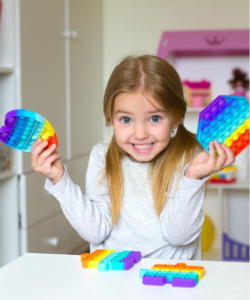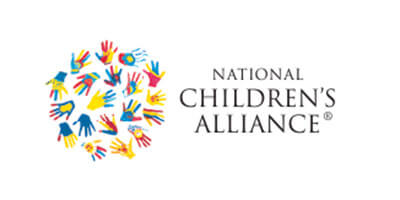A few months back, our interns had the OPPORTUNITY to visit a Play therapy center and learn about all that play therapy can do for children. our previous intern, Holly, shares her experience below:
On Monday, March 5, 2018 I had the Child Advocacy Center of Lapeer provided me with the opportunity to visit Dr. Laura Hutchinson, (aka PlayDrMom). Dr. Hutchinson is a psychologist that specializes in children and play therapy. On our visit we were able to see her office and the play therapy room. Her play room is stocked full of toys, games, puzzles, costumes, stuffed animals, sand trays and more! It’s every kid’s dream place and I must admit there were a few toys I was wanting to play with myself! After giving us the tour of the rest of her office we sat down to ask each other questions and get an understanding from Dr. Hutchinson about what play therapy really is and why it’s beneficial.
The Association of Play therapy (APT) defines play therapy as, “the systematic use of a theoretical model to establish an interpersonal process wherein trained play therapists use the therapeutic powers of play to help clients prevent or resolve psychosocial difficulties and achieve optimal growth and development”. Simply put, child play therapy is a way of being with the child while allowing them to express their feelings and emotions at their developmental level while playing. The therapist looks for ways of helping by observing the way the child plays during their sessions. Licensed mental health professionals therapeutically use play to help their clients, most often children ages three to 12 years, to better express themselves and resolve their problems.
Mental health agencies, schools, hospitals, and private practitioners have utilized play therapy as a primary intervention or as supportive therapy for; behavioral problems, such as anger management, grief and loss, divorce and abandonment, and crisis and trauma. As well as, behavioral disorders, such as anxiety, depression, attention deficit hyperactivity (ADHD), autism or pervasive developmental, academic and social developmental, physical and learning disabilities, and conduct disorders.
Dr. Hutchinson focused on the importance of play and the fact that the children benefit and learn numerous things from play such as; sharing, coping skills, limits, boundaries, verbal and non-verbal skills, social skills, self-awareness, leadership, cooperation, perseverance, exploring their imagination, resilience, fine and gross motor skills, self-direction, and decision making, just to name a few!
I thought the trip was a wonderful experience! Dr. Hutchinson had a lot of information and knowledge that she was willing to share with us. I learned many new things about play therapy and I think it really is a great form of therapy to use.
More information on play therapy or Dr. Hutchinson can be found at: http://www.a4pt.org/page/WhyPlayTherapy and at: http://blog.playdrhutch.com/category/play-therapy-2/about-play-therapy/page/2/







